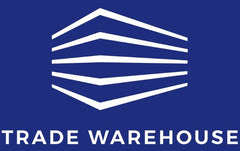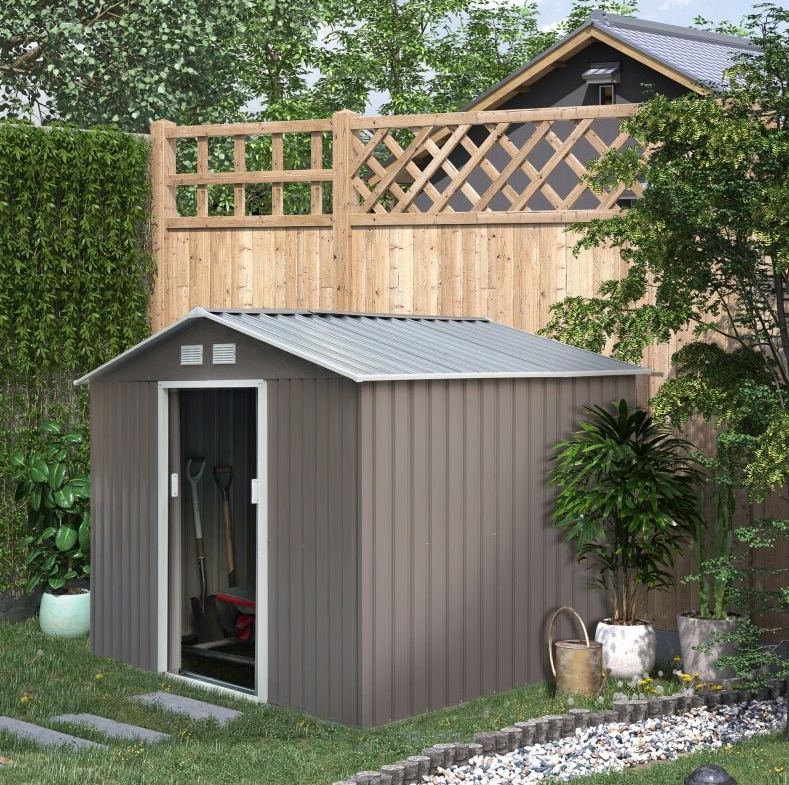Metal sheds are a popular choice for outdoor storage due to their superior durability and low maintenance requirements.
However, a common concern among potential buyers is whether these structures are noisy during rainfall.
The sound of raindrops on a metal roof can be bothersome to some, raising questions about the practicality of metal sheds. This guide delves into how rain affects metal sheds and offers practical solutions to mitigate noise.
The Impact of Rain
Rain can affect metal sheds in several ways, influencing both their longevity and the noise they produce:
Rust and Corrosion:
- Uncoated Metal: Susceptible to rust when exposed to moisture.
- Protective Coatings: Modern metal sheds often come with protective layers that prevent rust.
Noise Generation:
- Shed Design: The shape and structure of the shed can influence how raindrops hit the surface.
- Material Thickness: Thicker metal panels can dampen noise compared to thinner ones.
- Roofing Options: Using materials like 34/1000 box profile sheets in the 0.7mm thickness can impact noise levels.
To minimise noise:
- Choose Thicker Materials: Opt for thicker metal roof sheets or galvanised roof sheets.
- Consider the Design: A well-designed shed with a sound-absorbing structure can reduce noise.
- Add Insulation: Install proper insulation to dampen sound.
- Use Acoustic Panels: Attach acoustic panels to the interior for effective noise reduction.
- Install Soundproofing Curtains: Hang soundproofing curtains to block external noise.
- Seal Gaps: Use weather-stripping on doors and windows to prevent noise from entering.
- Apply Rubber Underlayment: Place rubber underlayment beneath the roof to absorb sound.
- Install Foam Panels: Use foam panels inside the shed to further reduce noise.
- Select Corrugated Flashings: Consider corrugated flashings which can help dampen the noise.
- Include a False Ceiling: Add a false ceiling to create an extra barrier against noise.
- Use Dense Insulation Boards: Dense boards can provide additional soundproofing benefits.
Key Takeaway:
💡 The design and materials of a metal shed play crucial roles in noise management and durability, with thicker panels and protective coatings offering significant benefits.
Common Perceptions vs Reality
Many people have preconceived notions about metal sheds, particularly regarding noise, temperature, and rust. However, modern advancements have addressed many of these concerns.
Noise During Rain:
- Misconception: All metal sheds are noisy during British downpours.
- Reality: Noise levels depend on the design and soundproofing features. Modern sheds, especially those made in the UK, can be relatively quiet with proper insulation and sound-absorbing materials.
Temperature Control:
- Misconception: Metal sheds become uncomfortably hot or cold.
- Reality: Proper insulation can effectively manage internal temperatures, making them suitable for various climates.
Rust and Corrosion:
- Misconception: Metal sheds rust easily in the rain.
- Reality: Many modern sheds are made from materials like galvanized steel or aluminium with protective coatings that resist rust.
Soundproofing Solutions
Reducing rain noise in metal sheds can be achieved through a variety of practical solutions, both DIY and ready-made.
DIY Solutions:
- Sound-Absorbing Materials: Install foam panels or rugs inside the shed to dampen noise.
- Proper Insulation: Use insulation materials to reduce the impact of rain sounds.
- Weather-Stripping: Seal gaps in doors and windows to prevent noise from entering.
Ready-Made Solutions:
- Acoustic Panels: Attach these panels to the interior of the shed for effective sound absorption.
- Soundproofing Curtains: Hang these curtains to block external noise.
Material Choices:
- Thicker Roof Materials: Use thicker metal roof sheets or galvanised roof sheets for better noise reduction.
- Roof Design: Consider corrugated flashings and 34/1000 box profile sheets for their noise-dampening properties.
Key Takeaway:
💡 Various soundproofing solutions, from DIY to ready-made options, can significantly reduce rain noise in metal sheds, enhancing their comfort and usability.
Some Maintenance Tips...
Regular maintenance is crucial to ensure the longevity and quiet performance of metal sheds. Proper upkeep helps prevent potential issues and maintain optimal conditions.
Regular Inspections:
- Check for Wear and Rust: Look for signs of rust, corrosion, or loose components.
- Apply Rust-Resistant Paint: Use rust-resistant paint or coatings to protect the metal.
Lubrication:
- Hinges and Locks: Regularly lubricate moving parts to prevent squeaks and ensure smooth operation.
Cleaning:
- Mild Detergent and Soft Brush: Clean the shed with mild detergent and a soft brush to avoid scratching the metal surface.
- Clear Debris: Remove debris from gutters and drainage systems to prevent water buildup.
Firm Anchoring:
- Secure the Shed: Ensure the shed is firmly anchored to reduce vibrations and potential noise amplification.
-
Insulation for Cold Climates:
- Regulate Temperature: Adding insulation helps manage internal temperatures and absorb sound.
Round-Up
Understanding how rain affects metal sheds allows you to make informed decisions about their purchase and maintenance. Noise concerns can be effectively managed through design, materials, and soundproofing solutions.
Choosing the Right Shed:
- Well-Made Designs: Opt for sheds with sound-absorbing features and proper insulation. here at Trade Warehouse, we supply a wide range of quality metal sheds.
- Modern Materials: Select sheds with protective coatings and thicker materials to reduce noise and prevent rust.
Overall, choosing a well-made metal shed and implementing soundproofing and maintenance strategies can help you enjoy the benefits of durable and quiet outdoor storage.
Final Thoughts
Metal sheds offer a robust and reliable solution for outdoor storage, withstanding various environmental conditions.
While concerns about noise during rainfall are valid, they can be effectively managed through careful design, material selection, and soundproofing techniques.
Modern sheds, equipped with advanced features like insulation and rust-resistant coatings, dispel many common misconceptions, providing a quiet, durable, and low-maintenance option for garden storage.

